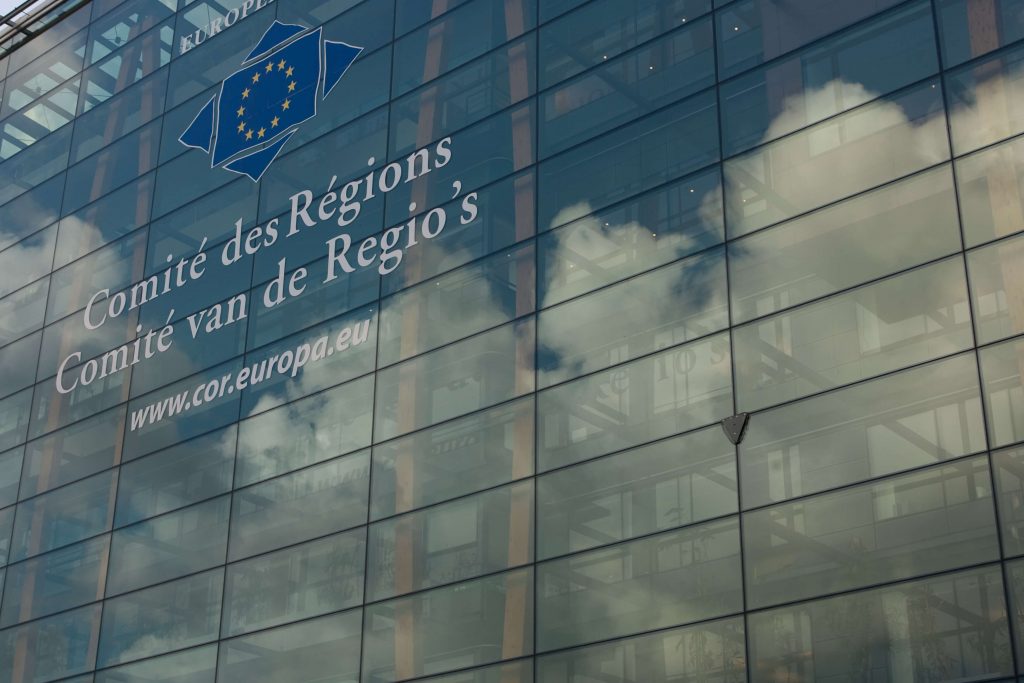
© European Communities, 2008 / Source: EC – Audiovisual Service / Photo: Thomas Haley
As a part of our ESRC funded project “The Economic Impacts of Brexit on the UK, its Regions, its Cities and its Sectors”, we ran a series of regional participatory workshops in an attempt to disseminate the outputs of the project as well as to connect with broader public policy arenas at the national and regional level. Our final workshop on ‘The Economic Impacts of Brexit in Europe’ was held in Brussels at the European Committee of the Regions on 22nd February. The main goal of the workshop was to bring together political and business leaders, together with academics and civil society organisations to discuss the likely impact of Brexit on European regions.
The workshop provided a great platform for city, regional and national stakeholders to share their own regional-specific research findings and collaborate with us on developing alternative post-Brexit scenarios, considering both what city-regional authorities want and also what policy responses are likely to be most effective. There was a great interest in the project and our attendees comprised of 100 representatives of the region, academics, other institutions such as the European Commission, EU Committee of the Regions, European Policy Centre and members of the public, most of whom already had some knowledge of our ESRC project.
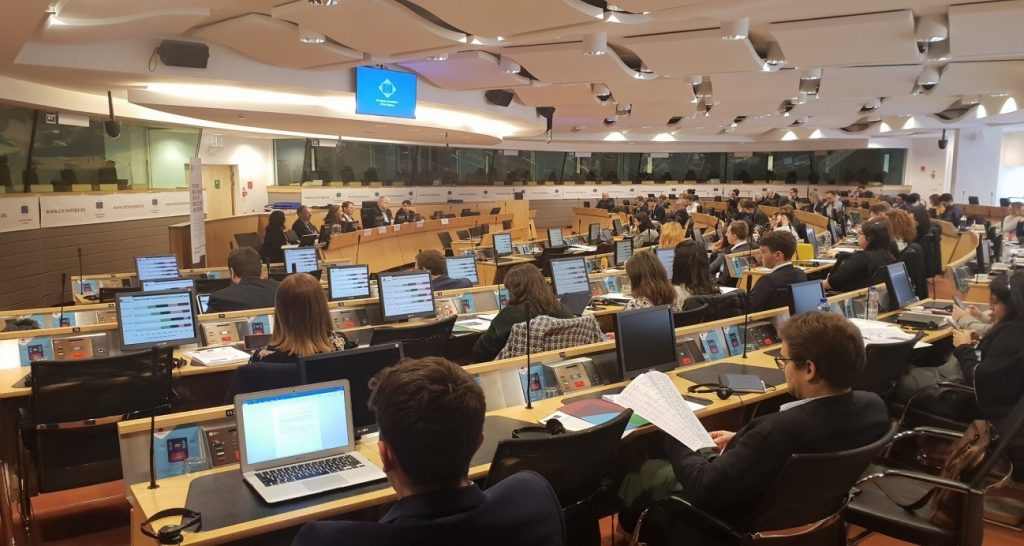
Our Principal Investigator Professor Raquel Ortega-Argiles (University of Birmingham, City-REDI) and Cllr Michael Murphy (Head of the Irish Delegation to the EU Committee of the Regions) opened the event by welcoming the delegates and participants to the workshop. Following the kick off, our first session focused on regional heterogeneity of Brexit effects with a great panellist line up including Professor Philip McCann (University of Sheffield), Dr. Martina Lawless (Economic and Social Research Institute ESRI), Professor Edgar Morgenroth (Dublin City University), and Professor Ignazio Cabras (Northumbria University).
Professor Philip McCann’s presentation had a special focus on the regional analysis of the project. It is noteworthy that, this analysis draws upon the most detailed regional-national-international trade and competition datasets currently available anywhere in the world, allowing us to examine the impacts of different post-Brexit trade scenarios on European regions. Our results identify noticeable patterns to the levels of exposure across Europe with north‐western European regions typically being the most exposed to Brexit, while regions in southern and eastern Europe are barely affected at all by Brexit, at least in terms of the trade linkages.
Dr Martina Lawless provided a great overview of the Brexit analysis for the Irish regions stating that impacts of any changes in the cost of trading post- Brexit are likely to be felt particularly by small firms trading across the globe. Dr Lawless’s presentation was followed by Professor Edgar Morgenroth’s presentation on the potential implications of Brexit in Ireland.
Professor Morgenroth’s analysis shows that the UK would get hit hardest by Brexit, followed by Ireland. In addition, this analysis reveals that a hard Brexit will increase regional disparities in Ireland and will hit poor households most.
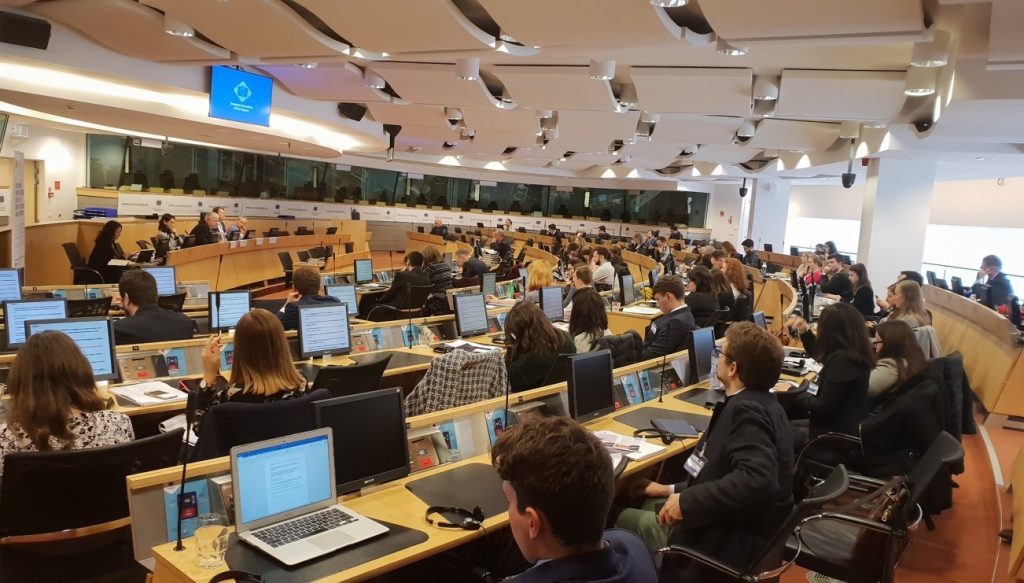
With regards to EU regions, Professor Ignazio Cabras discussed his work on the potential implications of Brexit, with a special focus on Italy. His results reveal that Purchasing Manufacturing Index (PMI -an indicator of economic health for manufacturing and service sectors) in the North Italy are likely to be heavily affected by UK’s withdrawal from the EU. Another distinctive feature of the study was about Italian expats living in the UK. His findings suggest that the number of Italian expats registered at AIRE (register of Italians residing abroad) in the UK increased after Brexit and UK is still the most preferred destination by Italian expats even with the Brexit.
Our following session focused on competitiveness challenges with contributions from Professor Bart Los (University of Groningen), Professor Frank van Oort (Erasmus University of Rotterdam), Dr Mark Thissen (Dutch Environmental Assessment Agency) and Professor Maria C. Latorre, (Universidad Complutense de Madrid ).
Professor Frank Van Oort presented another important aspect of our study on competitiveness and carefully illustrated how competitiveness is measured for the purpose of identifying potential Brexit challenges. Findings so far reveal crucial insights into the comparative nature of competitiveness challenges across EU member states including Austria, Netherlands and United Kingdom. To illustrate this further, it is worth noting that London and Rotterdam have the largest overlap in sales market. Thus, competition between companies in London and those in Rotterdam is larger than that of those between in London and in Vienna.
Dr Mark Thissen provided further insight into Brexit-related changes in the competitive position of sectors in various Dutch regions, the UK and the EU. Findings show that many industries in the Netherlands, UK and the EU, in general, will face increased input costs. Also, increased sales prices for goods and services would potentially translate into relatively strengthened companies in European regions that are economically stong.

Our competitiveness analysis was followed by Professor Maria C. Latorre’s presentation on estimations on the effects of soft and hard Brexit scenarios on foreign direct investment (FDI) in the UK and the rest of EU. Her analysis suggests that (i) trade costs in almost all sectors increase due to Brexit (ii) FDI adds 1/3 of the negative effects, and (iii) UK obtains very little with the unilateral tariff elimination and the FDI agreements.
Our following session’s main focus was around sectoral challenges that included presentations from Professor Bart Los (Erasmus University of Rotterdam), Dr Sebastian Benz (OECD), Dr Mercy Ojo ( Newcastle University) chaired by Professor Raquel Ortega-Argiles (University of Birmingham).
Professor Philip McCann on behalf of Professor Bart Los presented striking findings from the sectoral and occupational Brexit analysis. The analysis reveals that many occupations are at risk and particularly rural workers are extremely exposed to Brexit. Furthermore, almost 7 per cent of 30 million workers in the UK are directly exposed to the negative effects of Brexit.
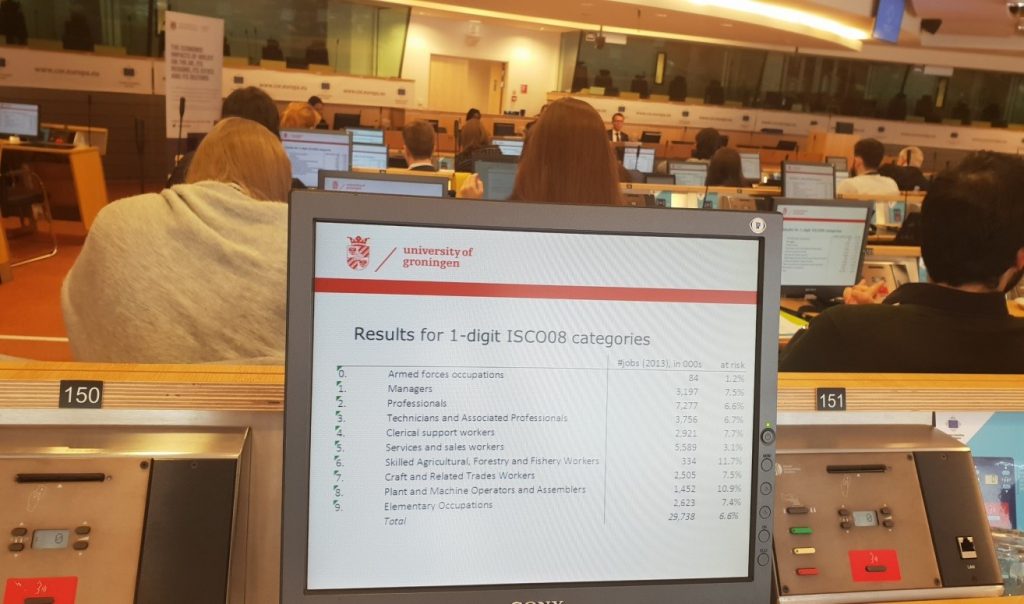
Following the labour market analysis, Dr Sebastian Benz provided insights into recent OECD research on EU services and trade. This recent work presents new data on regulatory barriers affecting services trade within the European Economic Area (EEA), covering 25 EEA countries, 22 sectors and five years (2014-2018). Following the methodology of the OECD Services Trade Restrictiveness Index (STRI), qualitative information is scored and weighted to produce binary composite indices. The resulting intra-EEA STRIs reveal that services trade restrictiveness within the Single Market is considerably lower than the applied MFN regime of those EEA members. Moreover, they show that EEA members have achieved significant regulatory harmonisation through their integration process.
Services sector presentation was followed by Dr Mercy Ojo’s presentation on the impact of Brexit on the agricultural sector in the UK. For this analysis, she estimated percentage changes in prices and production for beef, sheep, dairy, pigs, poultry and barley in particular. Their macrosimulation model’s outcomes suggest that mean income in the agriculture sector will decrease drastically in England, Wales, Scotland and N. Ireland.
Our final session’s main focus was on governance challenges and it was chaired by Professor Philip McCann (University of Sheffield) with contributions from Professor Raquel Ortega-Argiles (University of Birmingham), Councillor Sir Albert Bore (President of the UK Delegation to the EU Committee of the Regions), Professor Simon Collinson (University of Birmingham), Professor Daniel Wincott ( Cardiff University) and Larissa Brunner (European Policy Centre).
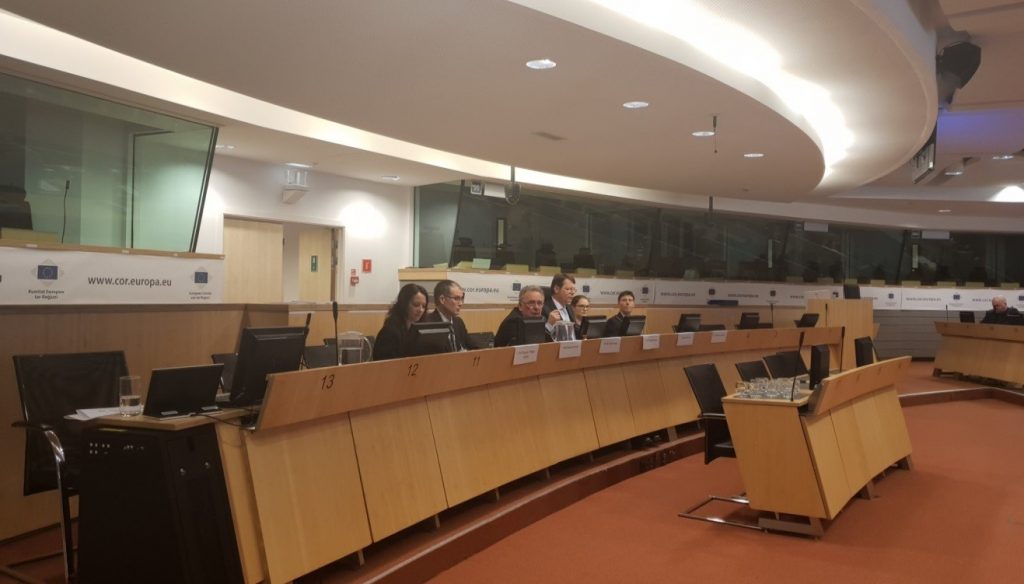
Our principal investigator Prof. Ortega-Argiles highlighted that particular attention to distributional implications of Brexit should be given where the allocation between winners and losers could be highly significant. With regards to regional inequalities, Professor Raquel Ortega-Argiles spoke about local prosperity in the UK and highlighted that local prosperity in weaker regions will be affected by the UK’s withdrawal from the EU.
Furthermore, Councillor Sir Albert Bore talked about various potential implications of Brexit across EU member states, stating that Brexit will impact on all 28 member states in a differential way and there will be winners as well as losers. He also highlighted the importance of collaboration among member states, commenting that whatever happens with Brexit there will be a continuing need for collaboration with the rest of Europe. Professor Philip McCann seconded this, commenting that the UK is one of the most unequal countries in the industrialised world and Brexit is likely exacerbate inequalities in the UK. In addition,Prof. McCann described the ‘geography of discontent’ to capture the socio-political economy underpinning the Brexit vote in the UK a country with a centralised governance structure but huge regional inequalities.
In addition to regional distributional inequalities, Professor Simon Collinson spoke about skills mismatch and the importance intra-regional labour mobility differences in the light of current structural changes. He stated that the UK has a lack of intervention mechanisms to deal with intra-regional differences of labour mobility regardless of Brexit and there does seem to be an overall uneven distribution of skills, with significant gaps or surpluses at various levels across regions.
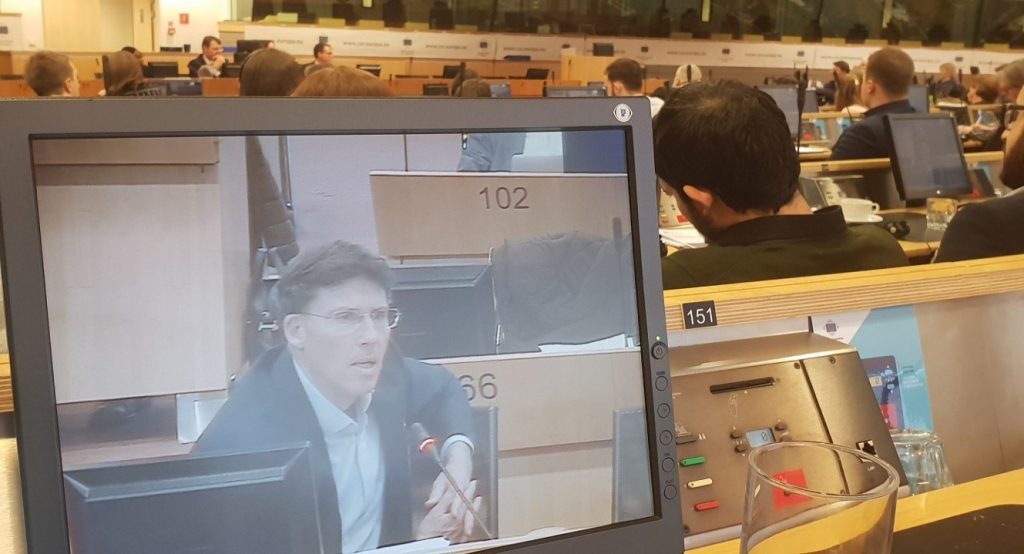
Concluding remarks to our workshop came from our principal investigator Professor Raquel Ortega-Argiles, Professor Daniel Wincott and Councillor Sir Albert Bore. Our UK in a Changing Europe Brexit project led by Professor Raquel Ortega-Argiles has increased attention to the heterogeneity of impact of economic development across EU member states. This is indeed an enormous challenge in Europe and we were delighted to have the opportunity to share, learn, and discuss recent research on Brexit and potential policy implications at the European Committee of the Regions.
We would like to thank everyone who showed such great interest in our project and supported us at the workshop and beyond!
To view the presentations from the day and to find out more about the project, please click here. The presentations can be found under the impact and influence tab.
Written by Dr Deniz Sevinc, Research Fellow, City-REDI.
Disclaimer:
The views expressed in this analysis post are those of the authors and not necessarily those of City-REDI or the University of Birmingham
To sign up for our blog mailing list, please click here.
